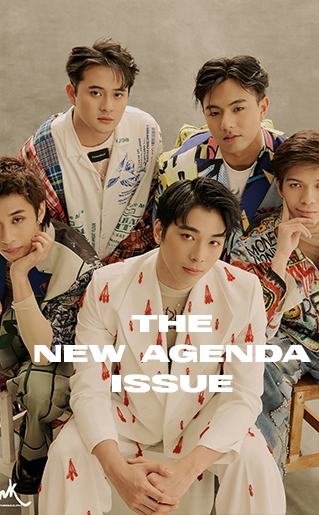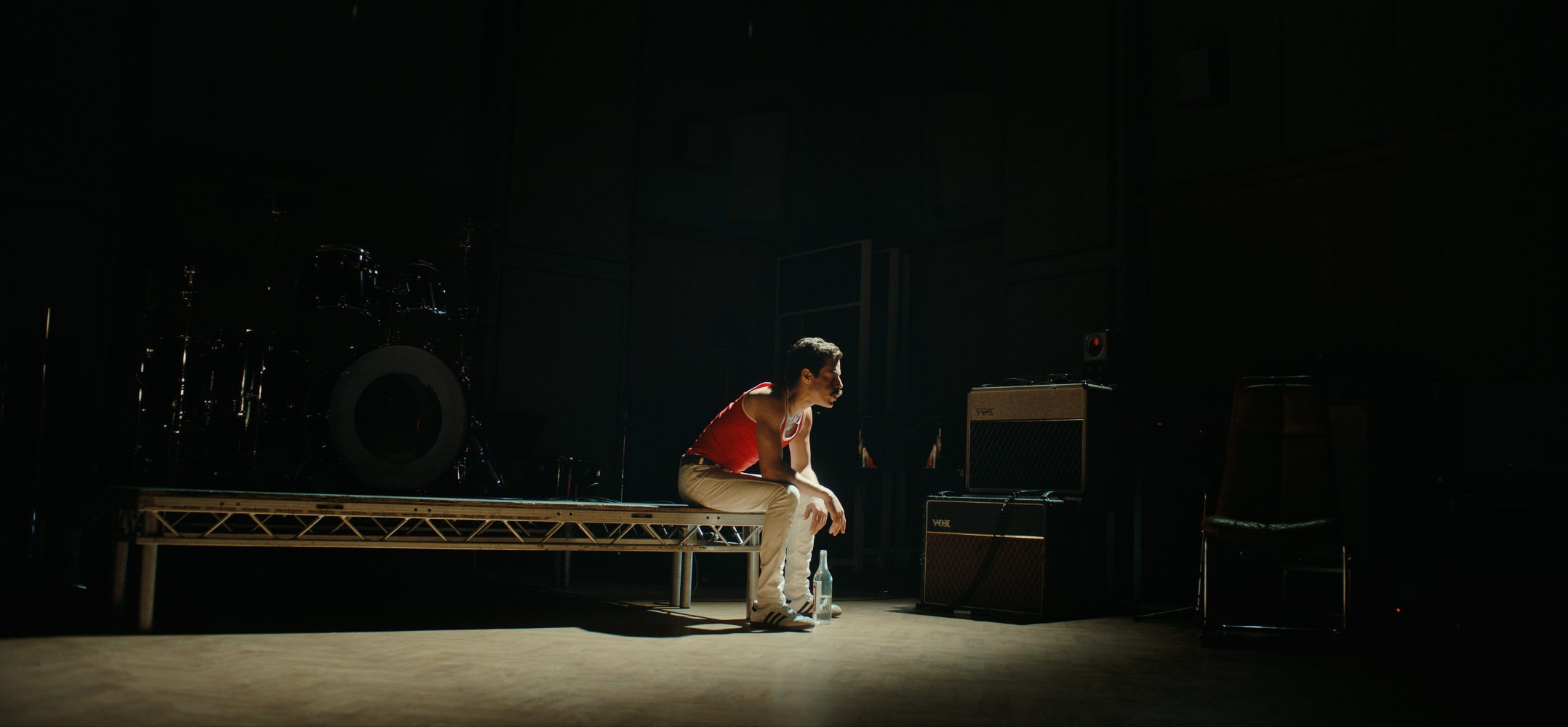If there’s a rockstar biopic worth celebrating onscreen, it would be that of Queen’s—what with the band’s undeniable contribution in the world of rock and of music and pop culture, many versions of its lead’s inscrutable personal life, and its multitude of hit songs that has ultimately become timeless anthems across generations.
And so, the minute 20th Century Fox unearthed first looks and teasers of an upcoming silver screen tribute to the men who would become one of rock ‘n roll’s biggest pillars, the anticipation did not wear out and the pressure, seemingly insurmountable. Why not? The movie is expected to be scrutinized by an array of fans of the band, its legendary frontman, and of rock ‘n roll as a whole.
The film, as it has been reported, did not breeze through its production process—going through casting changes and publicized push-and-pull from the director’s chair. In the end, final crediting of the film went to Bryan Singer who has reportedly turned its back on the film mid-production. The drama, as is expected, did not evade the journey of the band’s story getting translated to the big screen.
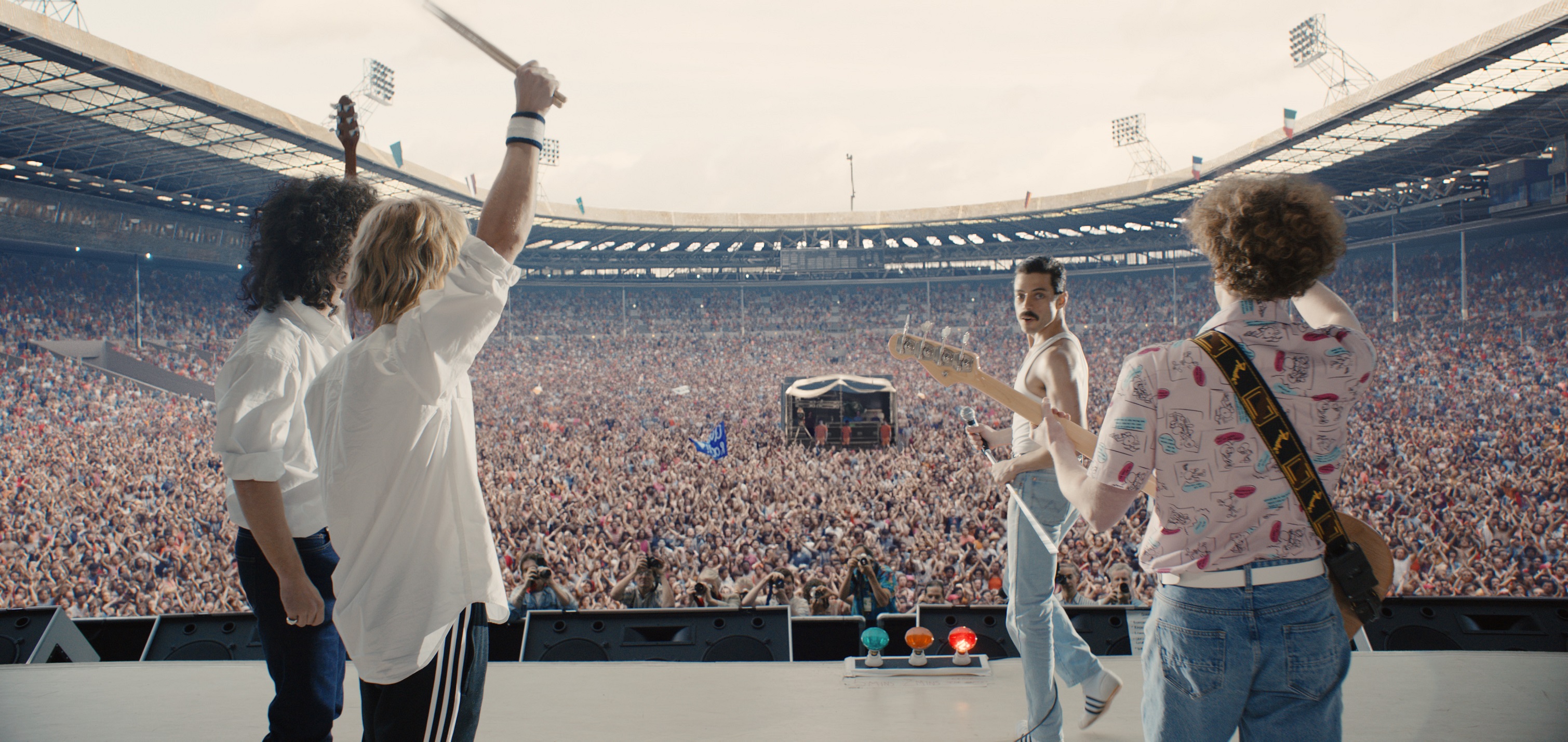
Bohemian Rhapsody charts the visual and aural history of Queen, bookending its onscreen exposition with the band’s career-defining 1985 Live Aid performance before going into detail of its origin story to its meteoric rise, to the untimely death of its charismatic vocalist Freddie Mercury, played by Mr. Robot’s Rami Malek.
Before his chaotic affair with stardom, Mercury was Farrokh Bulsara, an Arts student of Parsi descent—with an insatiable search for success, and ultimately, his life’s meaning. By happenstance, he meets with guitarist Brian May (Gwylim Lee) and drummer Roger Taylor (Ben Hardy), who were then abandoned by their vocalist of their band, Smile. The rest, as many would put it, was history.
They would later on add bassist John Deacon (Joseph Mazzello) in their arsenal and would start to make waves in the college circuit before gambling on making a demo record that would be noticed by music executives. In comes, John Reid (Aidan Gillen) who would steer the wheel to band’s rising celebrity. In the middle of this journey was Mary Austin (Lucy Boynton) who captures Mercury’s fancy, but would later on become his life-long confidante—staying with him through his highs and lows.
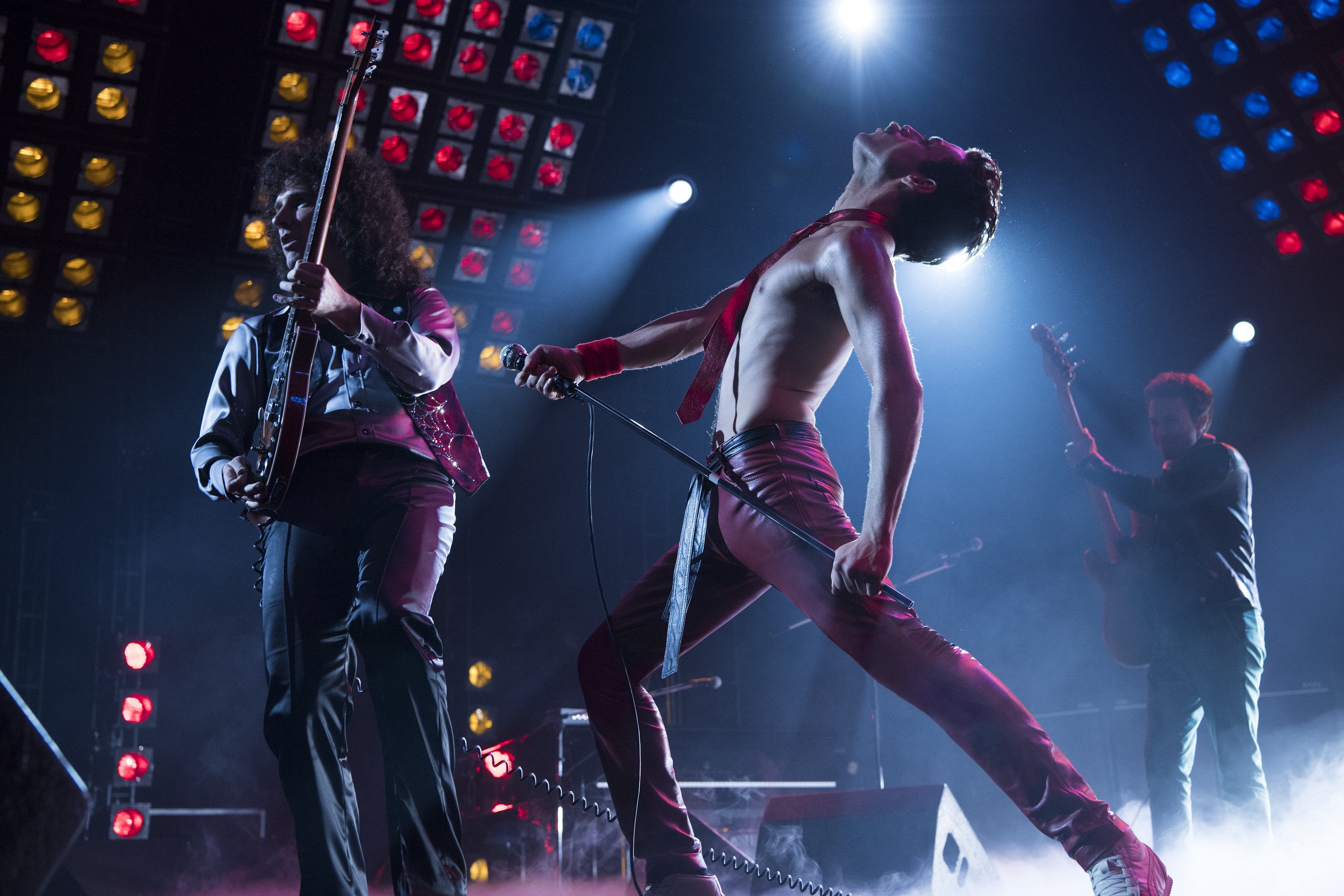
Bohemian Rhapsody, in all its grandiose glory, is a love letter to fans of 70’s and 80’s rock ‘n roll, largely characterized by the band whose insignia would then resonate greatly with the world of misfits, and its title, aptly representing the song that would characterize and sum up the band’s mission to color outside the lines—unconventional, indecipherable, original, and larger-than-life. Arguably one of the best written songs of all time, Bohemian Rhapsody, the song, tackles the band’s musical DNA—free and undefined.
In a scene, when asked what Queen is all about, Mercury answers, “We are four misfits who don’t belong together, playing for other misfits and the outcasts right at the back of the room, who pretty sure they do not belong either. We belong to them.”
The film shows a stark contrast of the band, particularly Mercury’s unstoppable surge to rock god status and the slow corruption of his personal life—depicting him in various stages of disarray: the inner dissatisfaction with people in his life, his sexual awakening, and substance abuse, leading to his untimely death in 1991. All these were greatly attributed to the toxic influence of Paul Prenter (Allen Leech), who, in the film, would single-handedly wreak havoc in Mercury’s life, his career, and his relationship with the band.

Bohemian Rhapsody, with the screenplay written by Academy-Award nominated Anthony McCarten treads an all-too-familiar narrative of the rockstar movie genre resulting in numerous tepid reviews overseas, particularly accusing the film for overly-sanitizing the rockstar’s rise to global fame and his eventual fall from grace.
A microscopic look at the film would lead to a lot of inaccuracies due to creative liberties undertaken for dramatic purposes and messy narrative but the film, in its totality, triumphs in capturing the heart and soul of a legend that would then mirror that of an all-too-glorious generation, no small thanks to a wealth of electrifying re-enactments of Mercury’s numerous live performances that would etch an indelible mark for him as a performer and earn the band an unmistakable place among the pantheon of rock royalties.
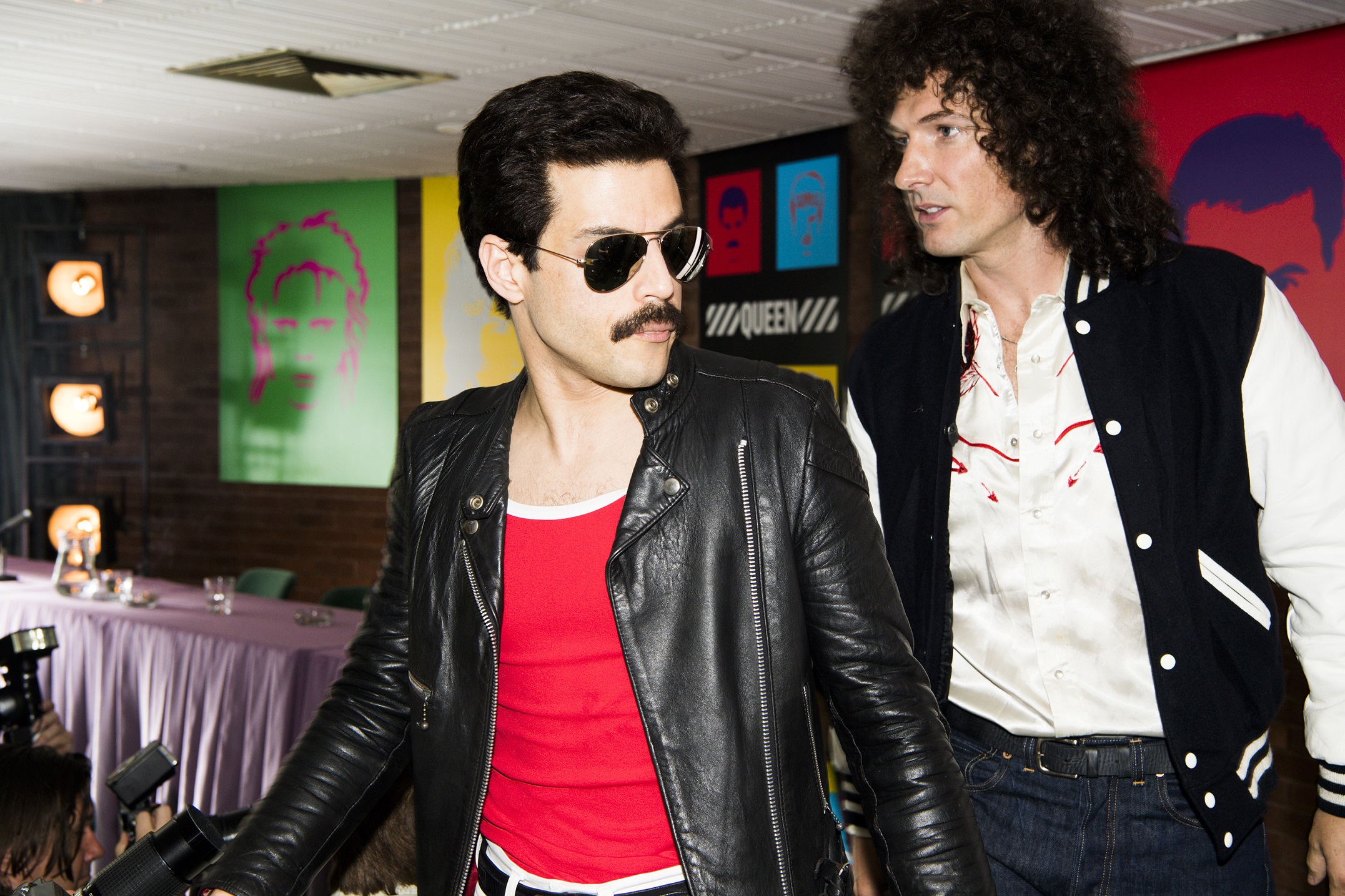
Many sequences in the film were identified to depart from several known real-life occurrences in the history of Mercury and the band, but this was done for a heightened sense of poignancy—from the band’s infancy and artistic formation, to Mercury’s discovery of his disease and the band’s supposed reunion for the iconic Live Aid stage performance that would then be watched by over a billion people.
Malek shines as Mercury–prosthetic teeth and all–the man who would lead Queen in 18 albums and countless hypnotic sold-out coliseums. The Mr. Robot actor rises in masterfully embodying Mercury and his unremitting power, and how his outlandish costumes and flamboyant presence onstage underscore his unrivaled musical genius. Every flick of the wrist, every fist pump, and sway of the hips are unmistakably Mercury’s but most notable is the deep well of stories evoked by his eyes. This enigmatic portrayal sure makes him an easy favorite for an Oscars nod. Uncanny semblances of its support cast are also to be lauded. Of note, quiet strength of Austin portrayed by Boynton and her role in Mercury’s life is a bittersweet silver screen triumph.
Songs like “Somebody to Love”, “Killer Queen”, “Crazy Little Thing Called Love”, and “Love of my Life”, were effectively placed to enamor and elicit familiarity among viewers leading to the meticulously-crafted, hauntingly-similar stage performance of Live Aid at the Wembley Stadium, starting with the abbreviated “Bohemian Rhapsody”, “Radio Ga Ga”, “Hammer to Tall”, and the hair-raising people’s anthem, “We are the Champions.” This generous serving of Queen’s repertoire of hits is as foot-stomping as it is heartwarming, making the film an entertaining ride—a visual and aural marvel that no flawed narrative or greatly-debated storytelling could take away.


